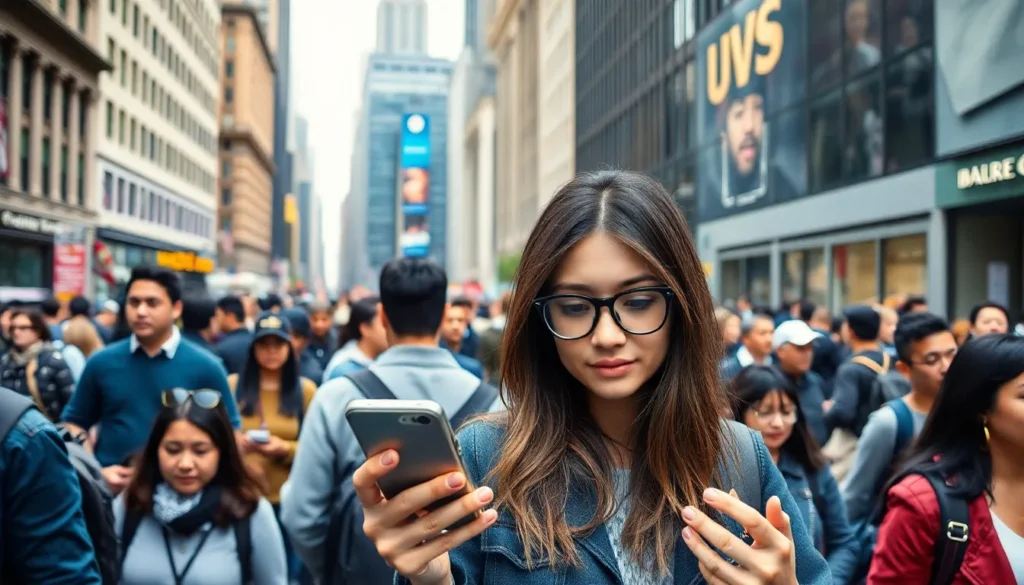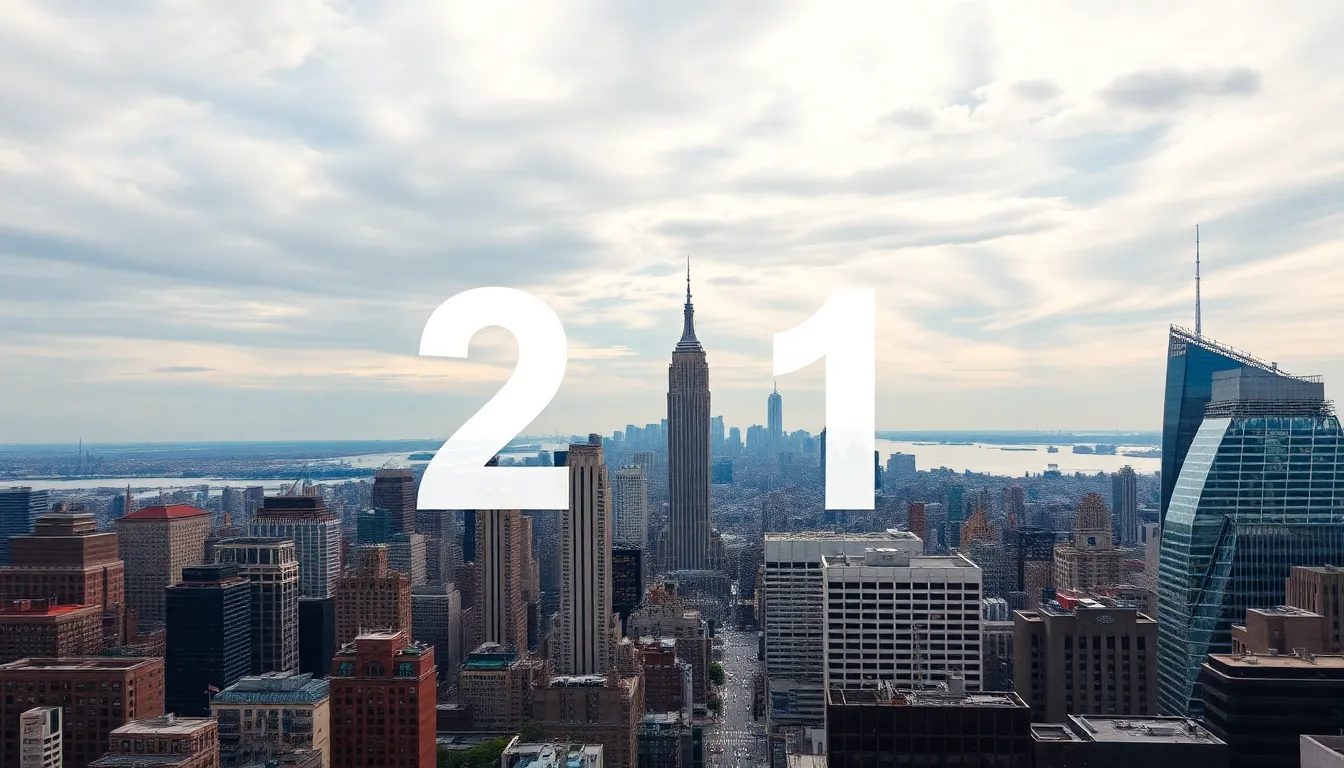Have you recently received a call from 2127461300? You’re not alone. This mysterious phone number has been popping up on countless caller IDs across the country, leaving many wondering about its origin and purpose.
The number 2127461300 originates from New York City’s Manhattan area, as indicated by its 212 area code. While some reports suggest it’s associated with legitimate business calls, others have flagged it as potentially suspicious. Understanding whether this number represents a genuine contact or something more concerning can help you decide how to respond when it appears on your screen.
Table of Contents
ToggleWhat Is 2127461300: Understanding This Mysterious Number
2127461300 is a Manhattan, New York-based phone number that’s gained attention due to its frequent appearance on caller IDs across the United States. This 10-digit number follows the standard North American Numbering Plan format with the 212 area code representing one of New York City’s oldest telephone prefixes, specifically serving Manhattan.
The number has become notable for several reasons:
- It’s associated with both legitimate business communications and potential telemarketing activities
- Many recipients report calls from this number with no voicemail left
- The caller typically disconnects if the call goes unanswered after several rings
- Multiple online forums contain discussions from individuals questioning the purpose of calls from this number
What makes 2127461300 particularly intriguing is the mixed reports surrounding it. Some recipients identify it as belonging to legitimate organizations such as financial institutions, customer service departments, or appointment reminder services. Others flag it as potentially suspicious, citing characteristics common to telemarketing or scam operations, including calls during unusual hours and caller ID spoofing techniques.
The ambiguity surrounding 2127461300 highlights the broader challenge of identifying unknown callers in today’s telecommunications landscape, where legitimate businesses and questionable operations often utilize similar calling patterns and technologies.
The Origin and Significance of 2127461300
The number 2127461300 originates from the heart of Manhattan in New York City, as indicated by its distinctive 212 area code. This particular sequence has gained significance due to its widespread appearance on caller IDs across the country and the mixed responses it generates from recipients.
Geographic Location Associated with 2127461300
The 212 area code, which forms the prefix of 2127461300, is one of the original 86 area codes established in 1947 during the North American Numbering Plan implementation. This code specifically serves Manhattan in New York City, one of the most densely populated and commercially active regions in the United States. The Federal Communications Commission (FCC) assigned 212 as Manhattan’s exclusive area code until 1992, when increasing demand for telephone numbers led to the introduction of overlay codes. Properties with 212 numbers often command higher market value in New York real estate circles, as these numbers are increasingly scarce and considered prestigious in business contexts.
Common Uses of This Number Sequence
This number sequence serves multiple purposes across different sectors. Financial institutions frequently use 2127461300 for customer verification calls, account notifications, and fraud alert communications. Customer service departments of major corporations employ this number for follow-up calls regarding product inquiries or service issues. Marketing agencies utilize the sequence for telemarketing campaigns, including promotional offers and market research surveys. Call centers based in Manhattan operate under this number for various outbound calling operations. The number also appears in automated messaging systems for appointment reminders, payment notifications, and service updates. Its versatility makes 2127461300 a common fixture in both legitimate business communications and occasionally in less reputable calling practices.
Is 2127461300 a Scam Number? Safety Concerns Explained
The legitimacy of 2127461300 remains questionable based on numerous consumer reports. This Manhattan-based number has generated mixed feedback across call-tracking platforms, with many users flagging it as potentially problematic. Reports indicate several concerning patterns associated with this number, including:
- Disconnecting calls when recipients answer
- Repeated calling without leaving messages
- Caller ID manipulation to appear as a local or trusted number
- Requesting personal information during conversations
Online complaint registries show a significant volume of negative reports about 2127461300, with users describing experiences consistent with telemarketing or potential scam operations. The Federal Trade Commission (FTC) database contains multiple entries regarding this number, though not at levels that would trigger automatic blacklisting.
Safety experts recommend exercising caution when receiving calls from 2127461300. Standard protective measures include letting unknown calls go to voicemail, blocking the number after suspicious contact, and reporting problematic interactions to the FTC through their official complaint portal. These precautions help shield personal information from potentially unauthorized collection.
While some calls from this number may represent legitimate business communications, the inconsistent calling patterns and lack of clear organizational identification raise reasonable concerns. The ambiguity surrounding 2127461300 exemplifies the challenges in distinguishing between legitimate contact attempts and potentially fraudulent communications in today’s telecommunications environment.
How to Handle Calls from 2127461300
Managing calls from 2127461300 requires a strategic approach to protect your privacy and security. These practical methods help recipients determine whether to engage with or avoid this Manhattan-based number.
Blocking Unwanted Calls from This Number
Blocking 2127461300 is straightforward across most modern devices. On iPhones, users can tap the information icon beside the number in their recent calls list and select “Block this Caller.” Android users typically tap the number in their call log, select “Details,” and choose “Block Number.” Landline users can contact their service provider to add this number to their block list or purchase call-blocking devices that connect to their phone lines. Many carriers offer free call-blocking services through their mobile apps or online accounts, allowing customers to create personalized block lists including numbers like 2127461300. Third-party call-blocking apps such as Truecaller, Hiya, and RoboKiller provide additional filtering options with regularly updated databases of problematic numbers.
Reporting Suspicious Activity
Reporting suspicious calls from 2127461300 helps protect others from potential scams. The Federal Trade Commission accepts complaints through their online portal at donotcall.gov or via phone at 1-888-382-1222. The Federal Communications Commission also maintains a complaint system at fcc.gov/complaints specifically for unwanted calls and spoofing activities. Detailed reports should include the calling number, date and time of call, and any information requested or tactics used by the caller. Consumer advocacy websites like the Better Business Bureau’s Scam Tracker allow users to log suspicious call activity, creating public records that alert others to potential threats. Many phone carriers maintain reporting mechanisms within their apps or websites, using this crowdsourced data to enhance their blocking technologies and protect their customer base.
Legitimate Businesses That May Use 2127461300
Despite the mixed reports surrounding 2127461300, several legitimate business sectors frequently use this number for customer communications. Financial institutions, including major banks and credit card companies, utilize this Manhattan-based number for account verification, fraud alerts, and transaction confirmations. These calls typically come from specialized security departments monitoring for unusual account activity.
Customer service departments from retail organizations also employ 2127461300 for follow-up communications. After purchase interactions or service inquiries, representatives may call customers to confirm satisfaction, address unresolved issues, or provide additional information about products or services.
Healthcare providers and insurance companies connect with patients and policyholders through this number for appointment confirmations, coverage verifications, and billing inquiries. The prestigious 212 area code lends credibility to these organizations when reaching out to clients nationwide.
Market research firms based in New York City use 2127461300 for consumer surveys and feedback collection. These companies conduct legitimate research activities, gathering consumer opinions and market trends data for various industries.
Telecommunications companies themselves may use this number for service updates, payment reminders, or network status notifications. As Manhattan houses headquarters for several major telecom providers, outbound communications often originate from numbers with the 212 prefix.
Subscription services and membership organizations reach out to current and former subscribers using this number for renewal notifications, account updates, and special promotional offers. These legitimate contacts are part of standard customer relationship management practices.
Protecting Your Privacy from Unwanted Callers
In today’s digital landscape, safeguarding personal information from unwanted callers like 2127461300 requires a multi-layered approach. Privacy protection starts with understanding the legal rights consumers have against intrusive calls and implementing practical measures to reduce exposure to potential scams.
Understanding Your Rights Under Telemarketing Laws
The Telephone Consumer Protection Act (TCPA) and the Do Not Call Registry provide fundamental protections against unwanted solicitations. Consumers registered on the National Do Not Call list can legally expect telemarketers to stop calling within 31 days of registration. The TCPA restricts telemarketing calls, auto-dialed calls, prerecorded messages, and unsolicited faxes, imposing fines up to $43,792 per violation. These regulations specifically prohibit calls before 8 a.m. or after 9 p.m. and require callers to maintain company-specific do-not-call lists.
Advanced Call Screening Technologies
Modern smartphones offer sophisticated tools to filter out suspicious numbers like 2127461300:
- Call filtering apps such as Truecaller, Hiya, and RoboKiller identify and block known spam numbers using regularly updated databases.
- Carrier-provided services from major providers like AT&T Call Protect, T-Mobile Scam Shield, and Verizon Call Filter categorize incoming calls based on risk levels.
- Smart assistants including Google’s Call Screen feature on Pixel phones interact with callers before connecting them, providing transcripts of these interactions.
- Silence Unknown Callers settings on iPhones automatically send calls from numbers not in your contacts to voicemail.
Creating a Personal Information Security Plan
Developing a comprehensive strategy to protect personal data minimizes vulnerability to information-gathering calls:
- Limit information sharing on social media platforms and public directories where data miners frequently harvest contact details.
- Use separate email addresses for important accounts versus promotional signups to compartmentalize personal information.
- Regularly check privacy settings on online accounts and opt out of data sharing when possible.
- Consider using virtual phone numbers from services like Google Voice or Burner for online registrations requiring phone verification.
- Review data broker listings on sites like Spokeo, BeenVerified, and Intelius, and submit opt-out requests to remove personal details.
Responding to Suspicious Calls
- Never confirm personal details even if the caller appears to already have them, as this validates your information in their database.
- Ask specific identifying questions about which company they represent and request written communication instead.
- Document call details including time, date, and any information the caller provided or requested for potential complaints.
- Use call recording apps where legally permitted (with proper disclosure in two-party consent states) to maintain records of harassment.
- Report patterns of calls to consumer protection agencies, creating a documented history of problematic behavior.
Conclusion
The mystery surrounding 2127461300 reflects today’s complex telecommunications landscape. This Manhattan-based number operates in a gray area where legitimate business communications and potential scams converge.
Whether it’s financial institutions conducting verification calls or telemarketers using sophisticated tactics the ambiguity demands caution from recipients.
By implementing practical protection measures like call blocking utilizing consumer rights under telemarketing laws and maintaining vigilant information security practices individuals can effectively manage these calls. The mixed reputation of 2127461300 serves as a reminder that in our interconnected world discernment remains essential when answering unknown numbers.






